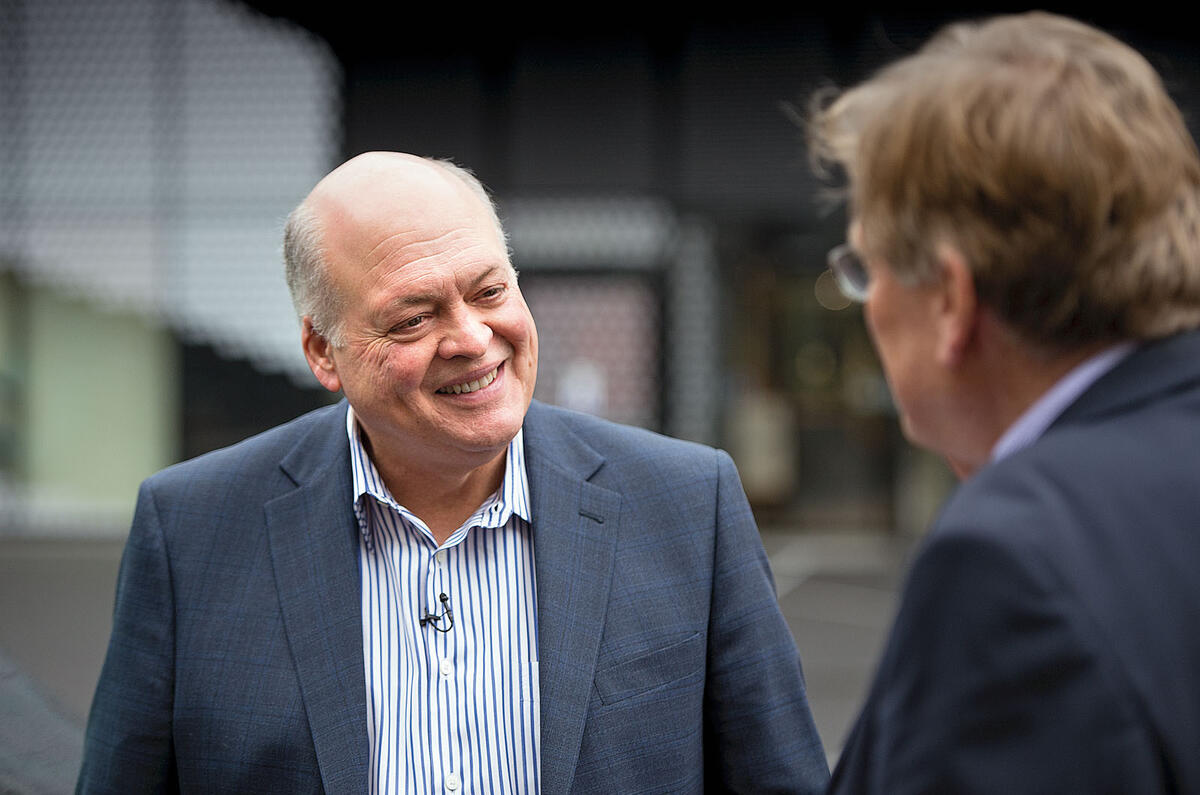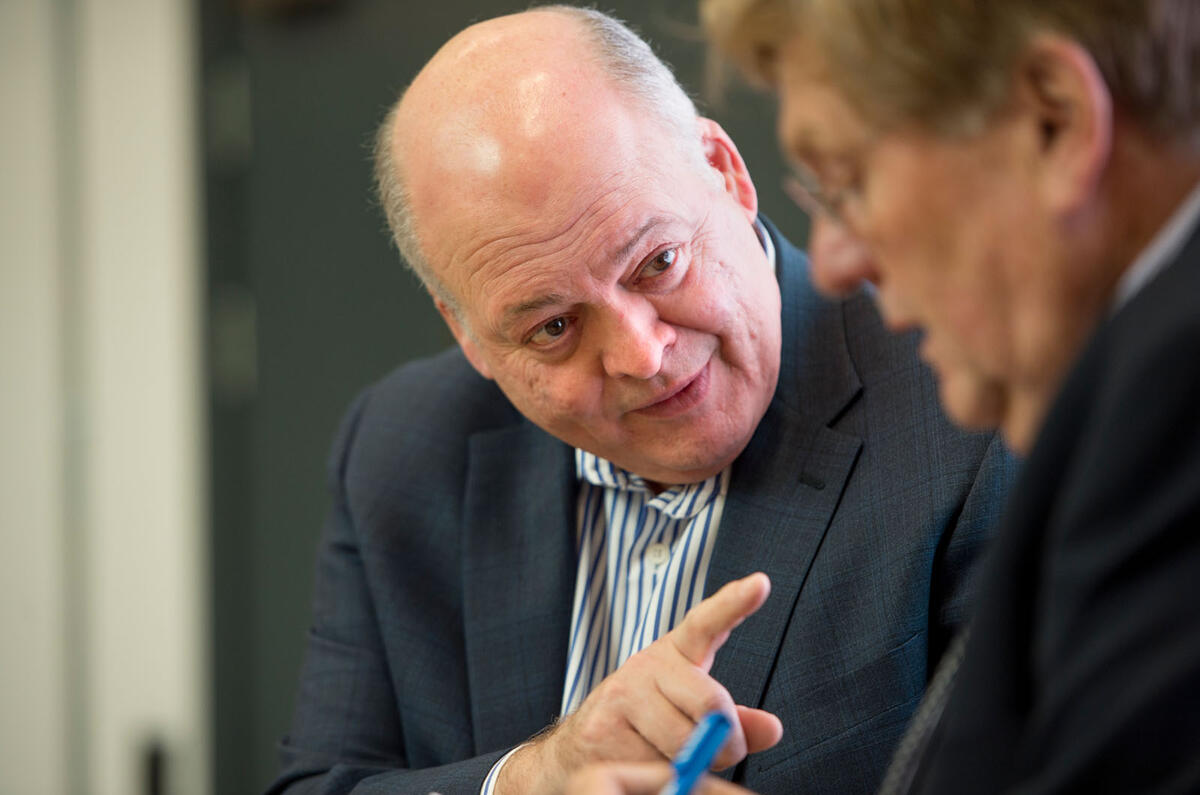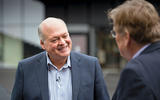Jim Hackett, Ford president and CEO this past five months, is in town to lead a revolution. In a nice way.
This is his first official visit to the UK: he’s here to open Ford’s new European Smart Mobility office, artfully located in the middle of a collection of technology start-ups and university satellites that have grown up in a collection of ex-Olympics buildings called Here East, near Stratford in distinctly non-leafy north-east London.
Here, Ford’s brightest and best technical talents will co-operate with others in similar cells around the globe to build what Hackett likes to call “smart cars for smart cities”. Electrification and autonomy are most certainly on the agenda because change is Hackett’s preoccupation. “The future is not a fantasy,” he likes to say. “As my old football coach used to say, you get better or worse, but you don’t stay the same.”

I’m standing with a knot of hacks, cameramen and Ford suits, waiting outside the new HQ for Hackett to arrive in an experimental Transit range-extender – in essence, an electric van that uses the celebrated 1.0-litre petrol three-cylinder engine to drive a generator. It is surely bound for production. He emerges impressed, although he looks a bit jet-lagged and momentarily nonplussed by the extravagance of our attention. It’s disarming to see that he doesn’t expect to be feÌ‚ted. “I’m what they call a reluctant CEO,” he says. “I didn’t need all this to happen to be happy...”
A homely, lived-in sort of bloke whose frame belies his years as a college football star, Hackett has already been extensively billed as “a deep thinker” and “a leader experienced in driving transformational change” by the company’s executive chairman, Bill Ford, who has assumed the role of recruiter-in-chief since 2006 when he gave up the big job himself and brought in Alan Mulally, fresh from a successful turnaround at Boeing. Mulally’s ‘One Ford’ mantra and his adroit but lucky avoidance of a 2008 government bail-out put Ford back on the rails far sooner than GM or Chrysler and greatly enhanced it in the eye of the US public. Thus Hackett has big shoes to fill: hardly anyone spares a thought for the footwear of recently departed CEO Mark Fields, whose management time delivered several years of record profits, but whose relationship with new technology always looked distinctly brittle. On Fields’ watch, Ford’s all-important stock price fell nearly 40% – to a point where profitless Tesla, making only a few thousand cars a year, had a greater market capitalisation than Ford. The headlines kept saying so and it couldn’t go on.
























Join the debate
Add your comment
More Jaw Jaw than War War
Looks like a flat pack furniture salesman sounds like a flat pack furniture salesman. Car companies are a bit special in that they only have very few products, this boss comes across as no more than an accountant/salesman, Ford need someone with petrol in their blood.
People's enthusiasm for their
Good luck settling your electric diesel Mustangs!
I have the constant feeling these guys don't believe in what they are saying, but feel obliged to say it.
I disagree that the markets are short termist. If they were, Tesla would have no value at all. What they are is ludicrously optimistic (or pessimistic) about the future. Hence the absurd valuation of Tesla.